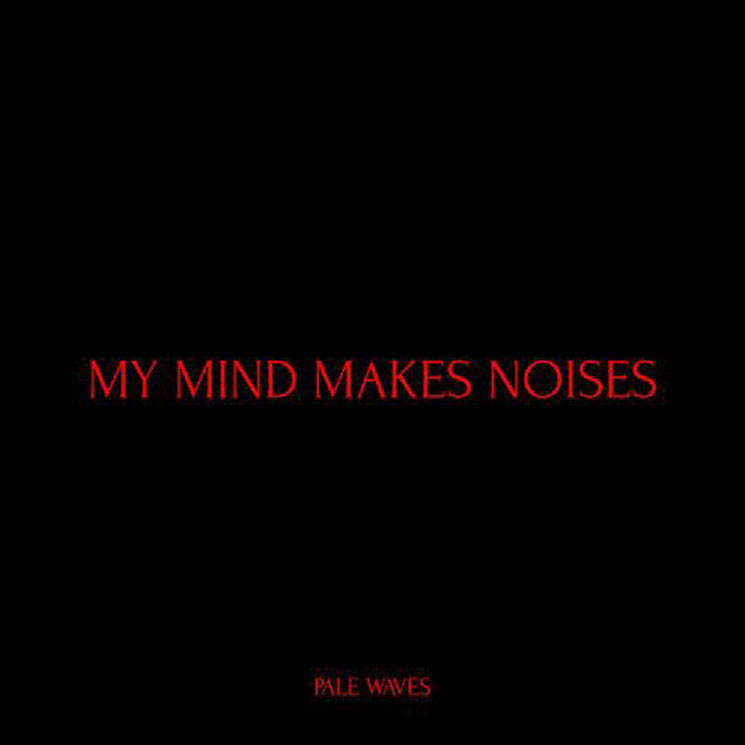Young love is pop culture's lifeblood; the amount of art that's been made in its name is staggering. Yet somehow artists keep finding fresh spins on the joy, heartache and anxiety that come with it.
It was certainly a creative catalyst for Pale Waves singer Heather Baron-Gracie. "I was 18 when I met you / Poured my heart out spilled all my truth / I finally felt like I could feel for the first time," she sings on "Eighteen," the opening track off the Manchester quartet's debut album. As far as thesis statements go, it's pretty clear — get ready for a heady trip into the mind of someone in the ecstatic throes of romance.
Like their mentors in the 1975, whose Dirty Hit label the band are signed to, she broadcasts her highest highs and lowest lows overtop of light and shimmering '80s rock and R&B with a modern pop gloss, the band's guitars rarely sounding like what they are.
The hook here, as it was on this spring's All The Things I Never Said EP is the gothic melodrama. Baron-Gracie, whose goth makeup and mop of jet black hair à la the Cure's Robert Smith have become the band's most indelible image, imbues every song with a heightened sense of emotion. Even when what's she's feeling is a bit thin, she feels it so deeply, you can't help but be pulled in with her.
It gives what can at first blush feel like another run-of-the-mill synth pop band a subtle but very distinct edge. Coupled with an aptitude for writing pop hooks — initial singles "There's a Honey" and "Television Romance," both included here, are still standouts — and the record makes a strong argument for the band as the leading entry in the growing genre of 1975-core.
Of course, tolerance for such a thing is subjective; if early aughts emo was your jam, there'll certainly be lots to love here. But this tumult of influences is liable to turn off just as many, as is the repetitive nature of the record's 14 tracks. The dry studio sheen flattens and rounds whatever edges the band might wield life, and its middle section is particularly weighted down by the ballad "When Did I Lose it All" which, after the drama of more upbeat fare, feel superfluous.
Like anyone enjoying the early rush of romance, this kind of music can feel silly with hindsight. But if you're willing to have yourself transported back to a time when you felt similarly, Pale Waves will do all the heavy lifting.
(Dirty Hit)It was certainly a creative catalyst for Pale Waves singer Heather Baron-Gracie. "I was 18 when I met you / Poured my heart out spilled all my truth / I finally felt like I could feel for the first time," she sings on "Eighteen," the opening track off the Manchester quartet's debut album. As far as thesis statements go, it's pretty clear — get ready for a heady trip into the mind of someone in the ecstatic throes of romance.
Like their mentors in the 1975, whose Dirty Hit label the band are signed to, she broadcasts her highest highs and lowest lows overtop of light and shimmering '80s rock and R&B with a modern pop gloss, the band's guitars rarely sounding like what they are.
The hook here, as it was on this spring's All The Things I Never Said EP is the gothic melodrama. Baron-Gracie, whose goth makeup and mop of jet black hair à la the Cure's Robert Smith have become the band's most indelible image, imbues every song with a heightened sense of emotion. Even when what's she's feeling is a bit thin, she feels it so deeply, you can't help but be pulled in with her.
It gives what can at first blush feel like another run-of-the-mill synth pop band a subtle but very distinct edge. Coupled with an aptitude for writing pop hooks — initial singles "There's a Honey" and "Television Romance," both included here, are still standouts — and the record makes a strong argument for the band as the leading entry in the growing genre of 1975-core.
Of course, tolerance for such a thing is subjective; if early aughts emo was your jam, there'll certainly be lots to love here. But this tumult of influences is liable to turn off just as many, as is the repetitive nature of the record's 14 tracks. The dry studio sheen flattens and rounds whatever edges the band might wield life, and its middle section is particularly weighted down by the ballad "When Did I Lose it All" which, after the drama of more upbeat fare, feel superfluous.
Like anyone enjoying the early rush of romance, this kind of music can feel silly with hindsight. But if you're willing to have yourself transported back to a time when you felt similarly, Pale Waves will do all the heavy lifting.
